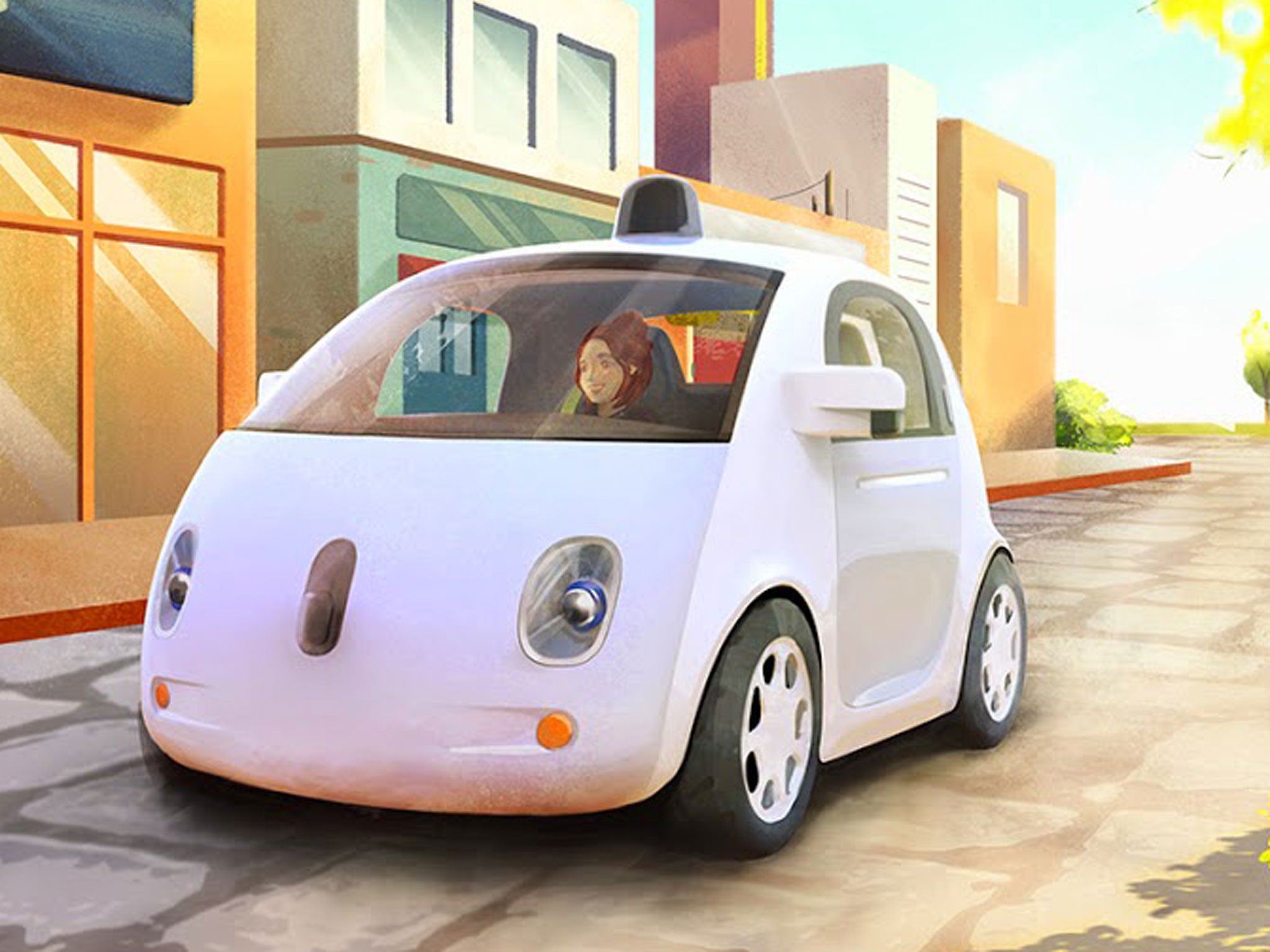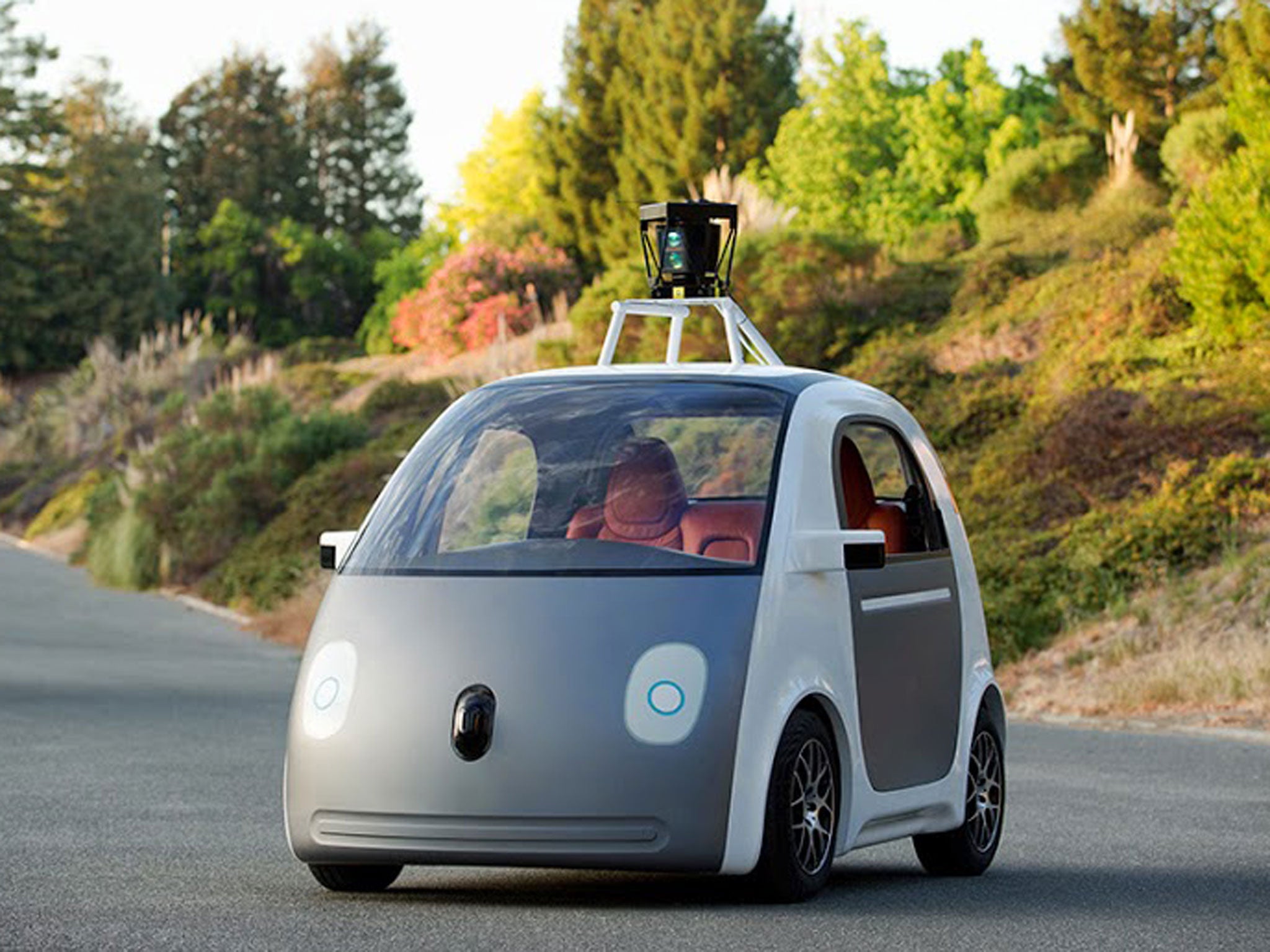Would you use one of Google's self-driving cars?
A fleet of 100 driverless cars will be ready for road-testing by this summer, says Google

Your support helps us to tell the story
From reproductive rights to climate change to Big Tech, The Independent is on the ground when the story is developing. Whether it's investigating the financials of Elon Musk's pro-Trump PAC or producing our latest documentary, 'The A Word', which shines a light on the American women fighting for reproductive rights, we know how important it is to parse out the facts from the messaging.
At such a critical moment in US history, we need reporters on the ground. Your donation allows us to keep sending journalists to speak to both sides of the story.
The Independent is trusted by Americans across the entire political spectrum. And unlike many other quality news outlets, we choose not to lock Americans out of our reporting and analysis with paywalls. We believe quality journalism should be available to everyone, paid for by those who can afford it.
Your support makes all the difference.No longer will Saturday night see arguments rage across the country about whose turn it is to be the designated driver. Now, the driver is, err… the car.
Google - who else - have reinvented the (steering) wheel, and unveiled plans to start road-testing a fleet of 100 self-driving cars as early as this summer.
The vehicles are controlled by a smartphone app and a start/stop button. They won’t have a steering wheel, accelerator or brake pedals because “they don’t need them”. Instead, sensors, cameras and GPS software will detect nearby objects at a distance of "more than two football fields in all directions". And if that doesn't reassure you, they have a top speed of 25mph, the bonnet is made from foam two feet thick, and the traditional glass windscreen has been replaced with shatterproof plastic, just in case the computer fails and the car crashes. Hurrah!
In a blog post, Google wrote: “We started with the most important thing: safety… Just imagine: You can take a trip downtown at lunchtime without a 20-minute buffer to find parking. Seniors can keep their freedom even if they can’t keep their car keys. And drunk and distracted driving? History.”
Tom Cheshire, Sky’s Technology Correspondent sees a bright four-wheeled future: “The promise of Google’s self-driving car is extraordinary. Instead of spending time fuming at the wheel, ‘drivers’ would be free to get on with work or watch a film…. Most cars are used only intermittently. But self-driving cars would be cars on-demand, a Netflix for wheels - or a cross between services like Zipcar and a taxi company like Hailo or Uber. Beyond the consumer applications, self-driving lorries would also revolutionise freight transport.”

Google's cars have already logged 10,000 miles driving around California's Mountain View, and have yet to crash or receive a single ticket. But, as Alex C Madrigal points out in The Atlantic, who would be liable to pay the fine? "When the car is in operation, there is someone sitting in the driver's seat, but that person isn't actually doing anything. Perhaps the ticket should go to the programmer who wrote the algorithm that made the mistake?"
Others have focused on the “cutesy” design, which depending on your viewpoint either resembles a grinning koala or the Little Tikes Cozy Coupe. “This way, attention stays squarely on their world-changing potential” says Josh Constine in Tech Crunch. “Just look at that goofy smile!”
Victoria Turk, writing in Motherboard, agrees. "This car isn’t built for cool points; it’s designed to push the idea that self-driving cars are totally safe and not scary at all...it’s not exactly a Ferrari, and it’s not meant to be."
But the main issues - perhaps rather obviously – are attitudinal: is the world ready to give up the wheel? Is the idea just too advanced and wacky for the public to accept?
What do you think? Would you be perfectly at ease in a car without a human driver? Do you welcome the age of the machines? Have your say in our poll:
Join our commenting forum
Join thought-provoking conversations, follow other Independent readers and see their replies
Comments